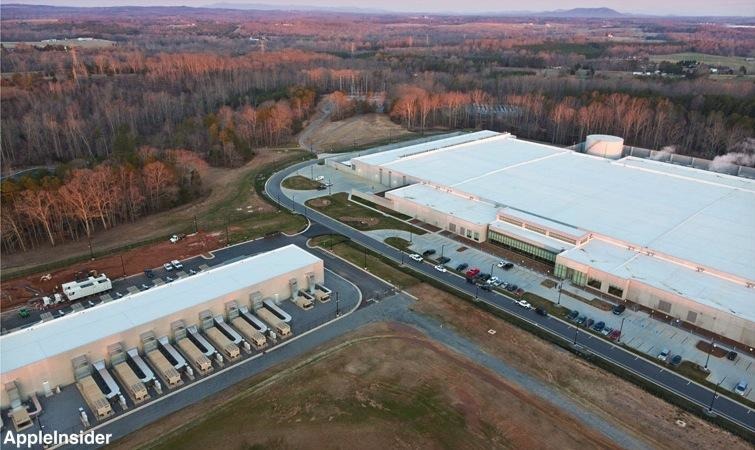An Apple executive tasked with managing backend infrastructure for the company's iCloud products, including the iCloud Drive cloud storage service, has left the company, potentially signaling a dramatic shift in favor of in-house data centers, according to a report on Friday.
Citing sources familiar with the matter, CNBC reports Apple's director of internet services operations, Eric Billingsley, is no longer with the company. His responsibilities, which covered the iCloud backend, will be transferred to senior engineering director Patrick Gates, who manages infrastructure for other internet-based services like Siri.
Billingsley joined Apple in 2013 after stints at eBay and, most recently, at Google where he served as director of engineering in the Geo-Commerce organization. Billingsley's arm relied on external cloud providers like Amazon Web Services and Microsoft Azure to help carry the growing weight of iCloud's customer base.
An unnamed source said data center infrastructure has been "a bit of a problem child" in the past, and Apple is looking to Gates to rectify the issue, the report said.
Last year, The Information reported political infighting amongst Apple's engineering teams was hampering the company's ability to fix ongoing issues related to its various cloud services platforms, which include iCloud and iTunes. In 2015, Apple decided to expand the cloud platform that powers Siri — run by Gates — to cover other areas of the company's blossoming services business, including iTunes, iMessage and iCloud, according to the publication. The move supposedly created tension between the two engineering teams.
At the time, Billingsley and Gates reported to VP of engineering Patrice Gautier, who is himself a report of SVP of Internet Software and Services Eddy Cue.
While not confirmed by Apple, Billingsley's departure suggests the company aims to lessen its reliance on outside services and bring those assets in-house, perhaps as part of the ambitious Project McQueen cloud infrastructure initiative.
The departure comes as Apple's services business enjoys rapid growth. In August, the segment generated revenues equivalent to a Fortune 100 company for the first time.
 Mikey Campbell
Mikey Campbell








 Charles Martin
Charles Martin
 Christine McKee
Christine McKee
 Wesley Hilliard
Wesley Hilliard
 Malcolm Owen
Malcolm Owen
 Andrew Orr
Andrew Orr
 William Gallagher
William Gallagher
 Sponsored Content
Sponsored Content








26 Comments
Oh please let this mean iCloud is being transferred under Craig Federighi.
About time someone was fired in relation to iCloud. Now I know many people have no problems at all with iCloud and iCould Drive, but we have had terrible trouble with folders not syncing; Macs being unable to log in; weird error messages. And Apple support has been next to useless.
Because our whole team is Mac based, and most of us iPad and iPhone users, we had great hopes for iCloud.
Needless to say, we've been forced to ditch it and have gone back to Dropbox and external Time Machine storage. And I can't see us going back —once bitten, twice shy!
If this departure is about Apple shifting its cloud ambitions to building its own custom cloud infrastructure, then that's a good thing. Cloud Infrastructure / AI / ML are core technologies that Apple needs to take control of. In hindsight, this move should have happened sooner.
Looking at the terms and conditions, iCloud is intended as a consumer product and not for business use.
Businesses will try to sign several devices using one “company” iCloud account but this turns into a mess when one person changes the password and then the others lose access or too many logging in with one Apple ID.
Expecting for Apple support to be “useful” in figuring out how to make iCloud bend for your team is asking a lot.
Apple’s business page https://www.apple.com/business/products-platform/
lists apps and resources used for businesses, even listing Microsoft Word and does not mention iCloud.
That gives us an idea where they currently stand.